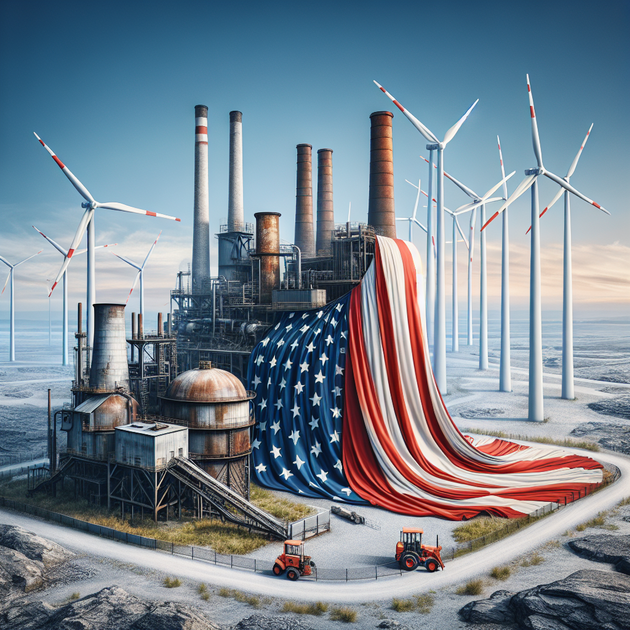Have you noticed how countries around the world are racing to embrace renewable energy—while the United States seems stuck on “beautiful coal” and old-school fuels? The debate around renewables isn’t just about environmental concerns; it’s about economic growth, jobs, and America’s place on the world stage. Let’s dig into why a strong stance against renewables could mean that the US is falling behind—and what that means for everyone.
How Renewables Became a Global Powerhouse
It might surprise some to learn that renewable energy is already powering huge portions of countries like Germany and China. According to the International Energy Agency, global investment in renewables reached record highs last year. Solar panels now outnumber new fossil fuel plants in many places.
Countries worldwide have realized that investing in wind, solar, and other clean sources isn’t just good for the planet—it’s also good for their economies. These technologies create millions of jobs and lower electricity costs over time. Even oil-rich nations like Saudi Arabia are betting big on renewable projects to diversify their economies.
The Impact of Favoring Coal Over Clean Energy
While others surge ahead with wind farms and solar power stations, recent US policy decisions have doubled down on traditional fuels like coal. Some leaders have called coal “beautiful,” rolling back regulations intended to support renewable growth.
But why does this matter? Sticking with older technology doesn’t just stall progress on climate goals—it can also mean missing out on:
- New job opportunities in solar and wind sectors
- Lower long-term electricity prices
- Cleaner air and better public health
- More stable energy independence
- Leadership in cutting-edge tech industries
Take a look at the U.S. Department of Energy’s solar jobs census, which shows that while solar jobs continue to grow globally, their growth has slowed down domestically compared to other countries firing ahead with supportive policies.
Global Trends Leave the US Playing Catch-Up
Other major economies aren’t waiting around. The European Union recently committed billions to expand electric grids and make wind turbines more efficient (European Commission press release). China has already become the world leader in manufacturing solar panels and electric vehicles.
This global shift is creating new leaders in technology—and new markets for exports and innovation. If American companies can’t compete because domestic demand lags behind government preferences for fossil fuels, they risk missing out on these growing opportunities.
A story from Australia illustrates this perfectly. When government support shifted towards renewables a decade ago, not everyone was convinced it would work. Today, cities like Sydney are powered primarily by green sources—and international companies are flocking there because of reliable, cheap electricity.
What Can Change Look Like?
It’s not all doom and gloom. There are signs of hope even within the United States—states like California and Texas (yes, Texas!) have become national leaders in wind and solar production thanks to local policies that support innovation.
Here are some strategies that have worked elsewhere:
- Stable incentives for investing in renewables
- Modernizing outdated electrical grids
- Public-private partnerships for research & development
- Clear long-term policies that encourage business confidence
Innovation thrives when there’s certainty. If federal policies change course—even slightly—to encourage rather than hinder renewable investments, American workers and entrepreneurs could be leading this charge once again.
Anecdote: One Town’s Turnaround with Clean Energy
In Georgetown, Texas—a place known for its conservative roots—the city council decided several years ago to switch entirely to wind and solar power contracts (NPR reports here). The move wasn’t about politics or even environmental activism; it was simply cheaper and more reliable than fossil fuels. Since then, Georgetown has become an unlikely poster child for how embracing renewables can benefit any community—no matter its political leanings.
The lesson? Sometimes moving past old divisions opens up surprising wins for everyone involved.
The Future at Stake: Will America Lead or Lag?
As more countries race toward a cleaner future powered by renewables, there’s a real risk that sticking with old habits will leave America playing catch-up—not just environmentally but economically too. While some may romanticize “beautiful coal,” most experts agree that turning away from clean energy could cost far more than it saves.
So here’s something to think about: If embracing new technology has always been part of America’s story—why stop now? How do you see the country balancing tradition with innovation as global competition heats up?

Leave a Reply